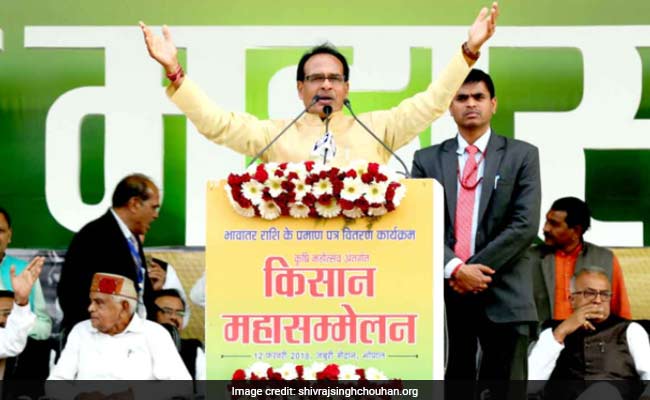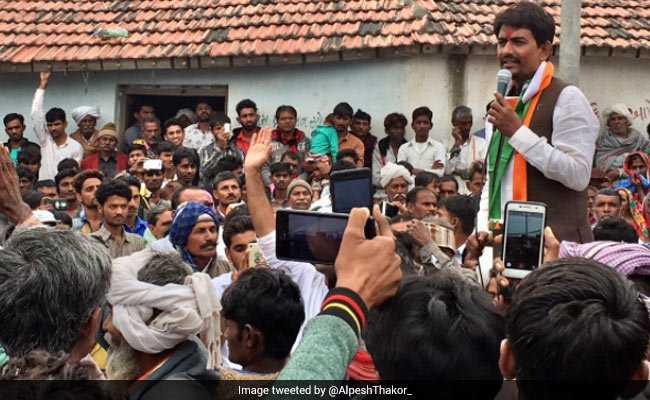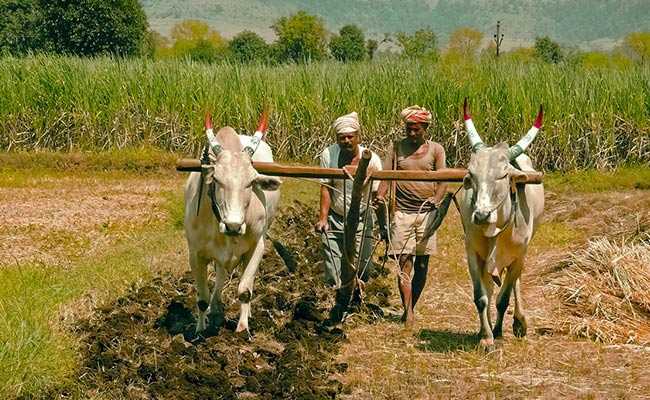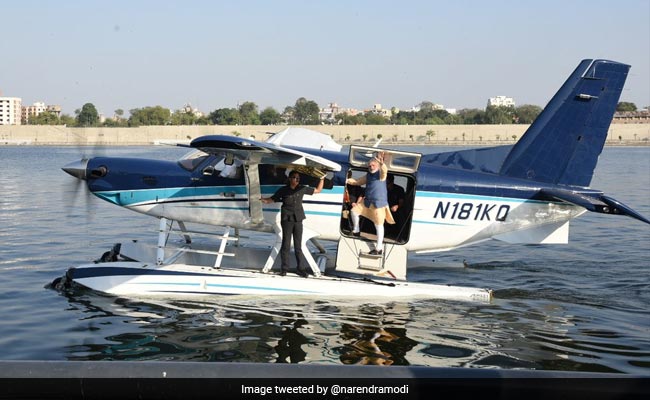
"Narendra Modi came to my village and said 'the farmers of Gujarat can harvest gold by using Narmada water.' That was before the assembly election in December," said Valji-bhai, a farmer in Saurashtra's Jamnagar district. "But now that the election is over, instead of getting more water, our existing supply is also being cut off."

Madhya Pradesh Chief Minister Shivraj Chouhan is banking on the Narmada to woo angry farmers this election
The largest of the 30 major dams on the Narmada is the Sardar Sarovar Dam, located right before the river empties into the Arabian Sea. This is Gujarat's primary source of water. This year, because the rainfall in the Narmada catchment area in Madhya Pradesh was low, all the dams on the river were given less than their usual supply.
The government of Gujarat says storage in the dam has dropped by 45 percent. Madhya Pradesh says given its own paucity, it cannot share more Narmada water with Gujarat.

The Sardar Sarovar Dam was meant to be a one-stop solution for Gujarat's water problems
"He is backed by the BJP government at the centre," alleges Congress leader Alpesh Thakor from Gujarat, "which wants to provide maximum Narmada water to the farmers in Madhya Pradesh, and then, when it is time for the next Lok Sabha polls, they will once again start shedding tears for the farmers of Gujarat."

Congress leader Alpesh Thakor alleges that water meant for irrigation is being diverted to industry
But it is last year's widespread protests by farmers, which saw five of them being shot dead in clashes with the police, that looms over Mr Chouhan's ambitions to return to power. The farmers wanted loans to be waived and better prices for their crops. Their strike began with vegetables and milk being unloaded on highways and smaller roads. As the protests grew, the police opened fire in Mandsaur, the epicentre of the movement. The anger remains unabated there. Four of the farmers who died were from the Patedar or Patel community. Once loyal to the BJP, the Patels in this recent election in Gujarat saw a division within with younger members turning to the Congress, especially in the rural heartland.

Farmers stopping a train during an agitation in Dewas, Madhya Pradesh
In an attempt to appease the Patedars and the farmers' lobby, and to avoid a re-run of Gujarat where farmers largely voted against the BJP in December, Mr Chouhan this week announced a slew of schemes that include the government guaranteeing a higher price for wheat and paddy. He also said irrigated land will nearly double (from 36 lakh hectares to 60 lakh hectares) without specifying a time period.

Madhya Pradesh Chief Minister Shivraj Singh Chouhan will be confronting anti-incumbency this election
In trying to collect all the water he can get to draw votes, Mr Chouhan is borrowing from the strategy used by Vijay Rupani and the BJP leadership in Gujarat ahead of December's election. They projected the new Sardar Sarovar Dam on the Narmada as the one-stop solution for all of Gujarat's water problems, claiming it will provide drinking water to over a hundred towns and more than half the state's 18,000 villages. The dam is also expected to irrigate large chunks of farming land in 15 districts.

Gujarat Chief Minister Vijay Rupani has ensured his constituency does not face water shortage
"We cannot be totally dependent on the Sardar Sarovar project. The Naramda water should be seen as an add-on of local sources of water and not as the main source," said B N Navalawala, the advisor to Gujarat Chief Minister on water management. "Everyone is talking about the Narmada, but the Tapi river which flows westward into the Arabian Sea is the driest it has ever been in the last 40 years." (The Tapi irrigates large tracts of land in Surat and Valsad districts of South Gujarat.)
Farmer organisations in Gujarat allege that the government knew in October that there was insufficient water in the Sardar Sarovar reservoir and that a large crisis was imminent, but hid the truth because of the state election. It was only last month that the administration made the unprecedented announcement that Narmada water will not be available for irrigation after March 15 (it will be reserved to supply drinking water). Farmers have been advised to not sow crops in the summer season unless they have other sources of water like borewells, built at their own expense. From today, three districts have been told that their supply of Narmada water is being cut off - ahead of the March 15 deadline the government has set for the state.

Farmers have been advised to look for alternate sources of water
"Normally, the water supply is cut off in June-July. If it is stopped in March, our crop will die. We have no choice but to look for other work as quickly as possible. Migration has already begun to Surat and Mumbai," he said.
Recent reports in the Gujarati media have claimed that PM Modi's much-headlined seaplane ride from the Sabarmati riverfront (developed as a tourist destination by him) in Ahmedabad to a dam in North Gujarat on the last day of campaigning was enabled because the river received more water from the Narmada dam than it should have. "They should have stopped in October, once the gravity of the water shortage became known, and preserved every drop for drinking purpose in the coming summer months" says Sagar Rabadi, a senior representative of a farmers' rights organization. Chief minister Vijay Rupani made sure that the Aji Dam in his constituency of Rajkot, Saurashtra's largest city, was filled to capacity. (The pipeline to bring the Narmada's water to Rajkot was laid in a record 7 months in time for the assembly polls. The BJP won 6 of the 8 seats in the district.)

Prime Minister Narendra Modi flew in a seaplane from the Sabarmati riverfront to Dharoi Dam in Mehsana district
"Right now we are giving the industry 50% less than their quota of water so it's a lie that water meant for irrigation is being diverted. Except for the Ukai dam, all other dams in Gujarat have sufficient water from last monsoon for farming purposes. The Narmada water will only be used for drinking," said Parbatbhai Savabhai Patel, the state's Water Minister.
The BJP leadership has described the Narmada as the lifeline of Gujarat, but with its government in Madhya Pradesh at its most vulnerable in recent years, the competing claims over the river are starker and more consequential than ever before.
Track Latest News Live on NDTV.com and get news updates from India and around the world

